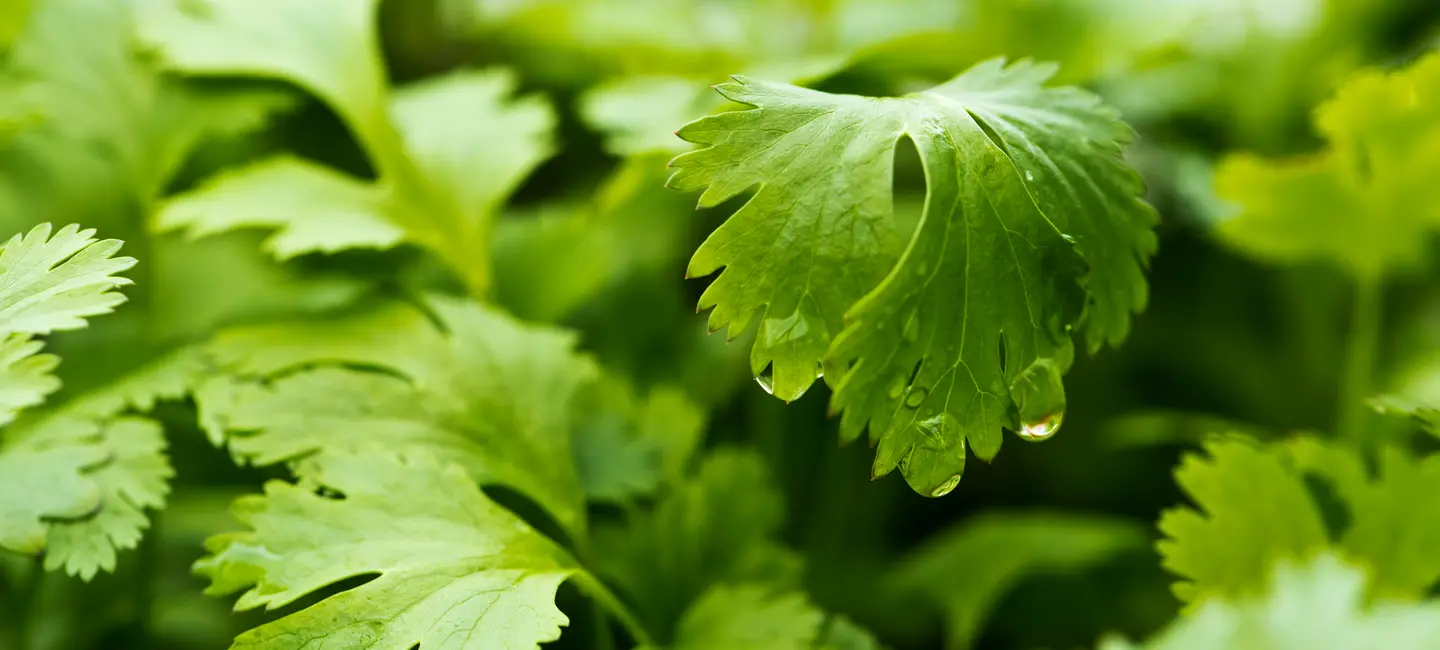
Cilantro refers to the leaves of the coriander plant. It is commonly eaten as a food or used as a spice. Cilantro can also be used as a medicine.
Cilantro is used for cancer, measles, toothache, and many other conditions, but there is no good scientific evidence to support these uses.
In foods, cilantro is used as a flavoring agent.
Is It Effective?
NatMed Pro rates effectiveness based on scientific evidence according to the following scale: Effective, Likely Effective, Possibly Effective, Possibly Ineffective, Likely Ineffective, Ineffective, and Insufficient Evidence to Rate.
- Cancer.
- Lead poisoning.
- Measles.
- Mercury poisoning.
- Toothache.
- Other conditions.
More evidence is needed to rate the effectiveness of cilantro for these uses.
Is it Safe?
Cilantro might help remove metals such as mercury, lead, and aluminum from the body. Removing these metals from the body might help some antibiotics and antiviral medicines work better. Cilantro might also help eliminate certain bacteria that cause infections.
When taken by mouth: Cilantro is LIKELY SAFE when taken in food amounts. But there isn't enough reliable information to know if it safe when used in larger amounts as medicine. Some people might experience allergies after eating cilantro. There is one report of hives, facial swelling, and throat swelling in a man who ate cilantro.
When applied to the skin: There isn't enough reliable information to know if cilantro is safe. When cilantro comes in contact with the skin, it can cause hives or itching.
Special Precautions & Warnings:
Pregnancy and breast-feeding: There isn't enough reliable information to know if cilantro is safe to use when pregnant or breast-feeding. Stay on the safe side and stick to food amounts.
Bleeding disorders: Cilantro might slow blood clotting. There is concern that cilantro might increase the risk of bleeding in people with bleeding disorders when eaten in large amounts.
Surgery: Cilantro might slow blood clotting. There is a concern that it might increase the risk of bleeding during and after surgery when eaten in large amounts. Stop using large amounts of cilantro at least 2 weeks before a scheduled surgery.
Medications that increase sensitivity to sunlight (Photosensitizing drugs)
Interaction Rating=Moderate Be cautious with this combination.
Some medications can increase sensitivity to sunlight. Cilantro might also increase your sensitivity to sunlight. Taking cilantro along with medication that increases sensitivity to sunlight could increase the chances of sunburn, blistering, or rashes on areas of skin exposed to sunlight. Be sure to wear sunblock and protective clothing when spending time in the sun.
Some drugs that cause photosensitivity include amitriptyline (Elavil), Ciprofloxacin (Cipro), norfloxacin (Noroxin), lomefloxacin (Maxaquin), ofloxacin (Floxin), levofloxacin (Levaquin), sparfloxacin (Zagam), gatifloxacin (Tequin), moxifloxacin (Avelox), trimethoprim/sulfamethoxazole (Septra), tetracycline, methoxsalen (8-methoxypsoralen, 8-MOP, Oxsoralen), and Trioxsalen (Trisoralen).
Medications that slow blood clotting (Anticoagulant/Antiplatelet drugs)
Interaction Rating=Moderate Be cautious with this combination.
Cilantro might slow blood clotting. Taking large amounts of cilantro along with medications that also slow clotting might increase the chances of bruising and bleeding.
Some medications that slow blood clotting include aspirin, clopidogrel (Plavix), diclofenac (Voltaren, Cataflam, others), ibuprofen (Advil, Motrin, others), naproxen (Anaprox, Naprosyn, others), dalteparin (Fragmin), enoxaparin (Lovenox), heparin, warfarin (Coumadin), and others.
Herbs and supplements that might slow blood clotting: Cilantro might slow blood clotting. Using it with other herbs that have this same effect might increase the chance of bruising and bleeding. Some herbs that might slow blood clotting are angelica, anise, arnica, asafoetida, bogbean, boldo, capsicum, celery, chamomile, clove, fenugreek, feverfew, garlic, ginger, ginkgo, horse chestnut, horseradish, licorice, meadowsweet, onion, Panax ginseng, papain, passionflower, poplar, prickly ash, quassia, red clover, turmeric, wild carrot, wild lettuce, willow, and others.
There are no known interactions with foods.
The appropriate dose of cilantro depends on several factors such as the user's age, health, and several other conditions. At this time there is not enough scientific information to determine an appropriate range of doses for cilantro. Keep in mind that natural products are not always necessarily safe and dosages can be important. Be sure to follow relevant directions on product labels and consult your pharmacist or physician or other healthcare professional before using.
Information on this website is for informational use only and is not intended to replace professional medical advice, diagnosis, or treatment. While evidence-based, it is not guaranteed to be error-free and is not intended to meet any particular user’s needs or requirements or to cover all possible uses, safety concerns, interactions, outcomes, or adverse effects. Always check with your doctor or other medical professional before making healthcare decisions (including taking any medication) and do not delay or disregard seeking medical advice or treatment based on any information displayed on this website.
© TRC Healthcare 2024. All rights reserved. Use and/or distribution is permitted only pursuant to a valid license or other permission from TRC Healthcare.
